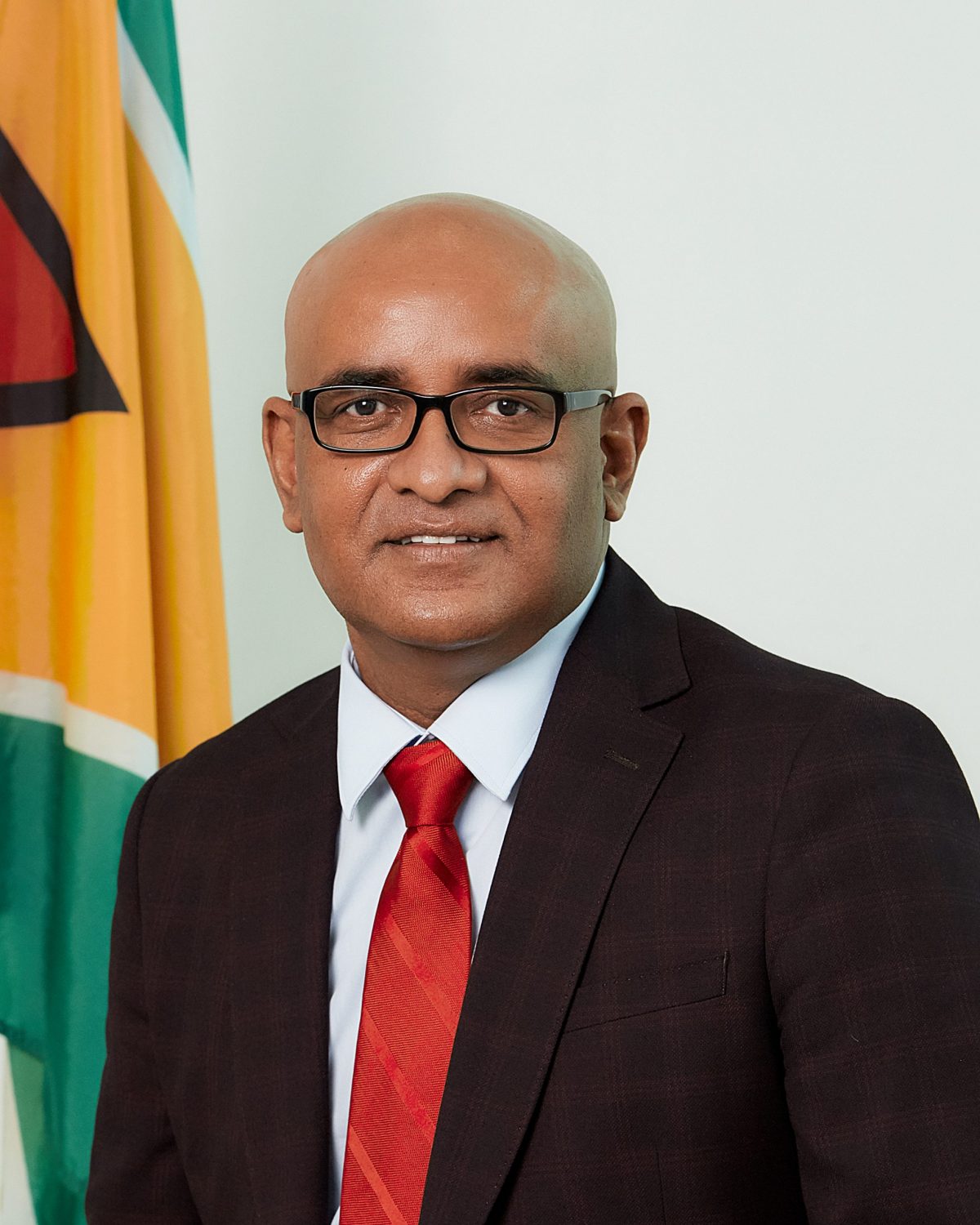The PPP/C government yesterday signalled to CGX Energy Inc (CGX) that it would be seeking amendments to the 2013 agreement signed under the Donald Ramotar administration, with Vice President Bharrat Jagdeo saying the decision is in keeping with campaign promises made to give this country better deals from the resource.
With CGX’s exploration licence set to expire in February of next year, Jagdeo hinted at leveraging that licence for especially better fiscal terms in a renegotiation of the Production Sharing Agreement (PSA).
The terms of the CGX Agreement are almost identical to those of the much maligned 2016 agreement signed by the current administration with ExxonMobil’s local subsidiary and its partners as it was from the same template that the two documents were formed.
“I don’t want to get into too [many] details because I can go through those that were raised about royalty rate and ring fencing and all of those issues have to be looked back at. [Also,] Tax treatment; a whole range of issues. Those would have to be looked at. There are about ten or eleven areas that we have identified,” he responded when asked if government would seek a better deal when CGX goes into a Production Sharing Agreement.
“A lot of them are to do with the fiscal terms, to have a look at. We also, let me very nuanced too because I like to be clear so people can understand. We have a window in which we want to accelerate the production; to transfer what is a buried asset and might become stranded into a financial asset and we therefore have to take that into account. However, the conditions would be better,” he told a press conference yesterday.
However, with the existence of a PSA, Jagdeo later clarified to the Stabroek News that it was amendments to that agreement government would seek.
Same template
CGX’s 69-page agreement, is comprised of 33 Articles and was signed by then president Ramotar on February 12, 2013. It appears to be an updated version that was clinched with CGX for its drilling operations, which began in 2000, but were interrupted by Surinamese gunboats.
Before CGX’s recent discovery at the Kawa-1 Well in the Corentyne, the Canadian oil explorer had sunk several offshore and onshore wells but had not found oil in commercial quantities.
The 2016 ExxonMobil agreement is modelled after the 2013 CGX agreement as this newspaper understands that it was from the same template the documents were crafted. While there are key differences in profit sharing and royalty provisions, articles addressing the stability of the agreement, relinquishment of areas and the extension of the agreement are nearly identical to the ExxonMobil PSA.
According to the 2013 agreement with CGX, government is guaranteed a 53% share of profit oil and profit gas, with 47% being retained by CGX. It also provides for a 1% subsumed royalty to be paid to the government. The ExxonMobil agreement, on the other hand, caters for a 2% royalty for Guyana, after which the two partners share profit from oil 50/50.
Additionally, the CGX agreement does not cater for a signing bonus as is catered for in Article 33 of the ExxonMobil agreement nor is there a provision for a “bridging deed”.
Article 32, which specifies that “government shall not increase the economic burdens of the contractor,” is for the most part identical in the two agreements.
Both agreements also provide for extensions totalling 10 years and relinquishment of areas at each extension. However, while the ExxonMobil agreement calls for a relinquishment of 20% of the original contract area, CGX is required upon each renewal to relinquish 25% of its contract area.
The areas do not include any discovery or production area for both companies but ExxonMobil has also been able to exclude “any area under an Appraisal program should the area be larger than the discovery area.”
Fair share
The Vice President, whose portfolio also covers finance and the energy sector, yesterday said that there has been much controversy over Exxon-Mobil’s 2016 amended PSA and his government has since promised that it would not repeat mistakes of the APNU+AFC.
“There is a lot of controversy about the PSA that (former Minister of Natural Resources Raphael) Trotman signed… that agreement, there has been a lot of controversy about it every day. … Everyone is saying that agreement does not give Guyana a fair share of the proceeds. We made it clear that at this point and time, we will not renegotiate the agreement, when [we were] in opposition. We then said, however, any new PSA that has to be signed [will see changes],” Jagdeo asserted.
When in Opposition, Jagdeo had called the ExxonMobil PSA a “horrible and incompetently negotiated” agreement which the party railed against from the time it became public knowledge.
Jagdeo said that when the company is ready to go into production, this country will seek to re-negotiate for improved terms and benefits. “To develop any new area into production they have to sign a new agreement and in that agreement, we will seek to correct some of the disadvantages of the one that was signed.”
“So when they are ready to move into that, they would have to come to the government, [that is] CGX to move into the production, and say in [the production] or development phase and work out that new agreement,” he added.





